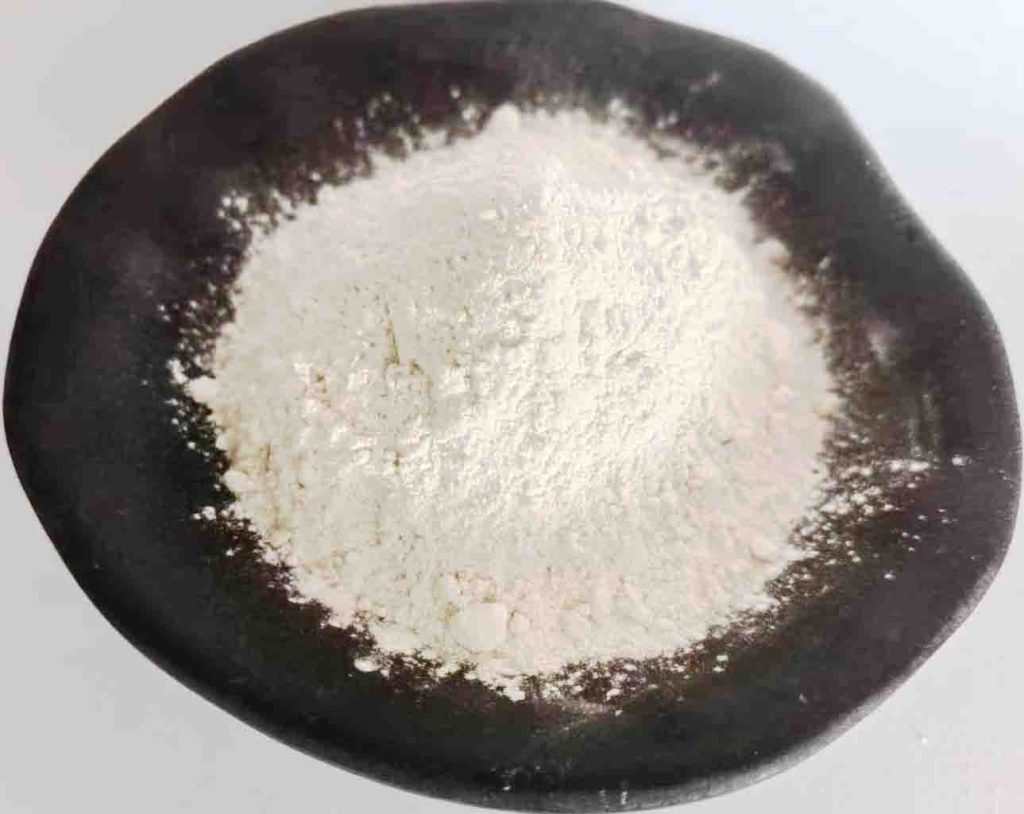Bentonite Clay
What is Bentonite Clay?
Bentonite Clay, to begin, what exactly is ORGANOCLAY? Organic clay is a special kind of clay that is made up almost entirely of smectite minerals; they are what give bentonite its distinctive qualities. Because of its remarkable capacity to take in water and then expand, it is an ideal option for a wide range of applications. organobentonite clay, when hydrated, transforms into a gel-like material that has significant adsorption characteristics. As a result, it is a common constituent in a wide variety of goods.
Clay composed with bentonite has excellent qualities that make it well suited for a variety of uses in a variety of contexts. It has a high cation exchange capacity, which indicates that it can attract positively charged ions and cling onto them. This property assists in the elimination of pollutants and toxins from the body, the skin, and even water sources.
What Does Bentonite Clay Do?
The removal of pollutants, heavy metals, and other potentially hazardous compounds from drinking water sources may be accomplished in how to use organophilic clay, which is a material that is often utilized in water purification systems. Because of its capacity to draw in and retain contaminants, activated carbon is a useful technique for enhancing the quality of water and guaranteeing that it may be safely consumed.
In addition to its capacity for adsorption, bentonite clay has remarkable rheological characteristics. It transforms into a gel-like material when combined with fluid, and this substance has a remarkable capacity to hold onto moisture. Because of this feature, it is an excellent candidate for inclusion in the formulation of cosmetics, where it contributes to the enhancement of product texture as well as stability and shelf life.
The usefulness of bentonite clay may be improved with the addition of organoclay, which is a modified form of the material. Organoclay, also known as organophilic bentonite, is produced when organophilic clay is subjected to a treatment that, via a chemical procedure, increases its affinity for molecules that are organic. The adsorption capabilities of organoclay are greater, and they are directed exclusively toward organic compounds. It is used in a variety of sectors, such as paints, coatings, drilling fluids, and greases, where it serves to enhance the performance of organic compounds as well as their stability and dispersion.
What is Common Bentonite Clay Uses?
Bentonite clay is used in a wide variety of sectors as well as in many forms of personal care. The following is a list of several of the most common applications for bentonite clay:
Drilling Fluid: Clay containing bentonite is an essential element of the drilling fluids utilized in the oil and gas sector in general. In the course of drilling operations, it carries out a number of functions, including lubricating, cooling, and the suspension of cuttings. The exceptional qualities of bentonclay, including its capability of transforming into a thick gel after being hydrated, play an important role in the stabilization of boreholes, the prevention of fluid loss, and the provision of support for the drill bit.
Clay made from bentonite is often used into the composition of paints, varnishes, and sealants. Paints benefit greatly from the outstanding suspension and leveling features that this substance’s rheological capabilities, which include thixotropy (the capacity to transform into fluid when agitated and restore viscosity while at rest), bestow upon them. organic clay not only makes coatings more durable but also increases their adherence and their resistance to the effects of weather, so making them more long-lasting.
Because it absorbs water and expands, organiclay is an excellent component for use in sealants, adhesives, and grouts. When hydrated, bentonite clay forms a barrier that cannot be penetrated. Numerous uses call for it, including the sealing of building joints, the waterproofing of structures, and the prevention of leaks. Bentonite clay, because to its swelling characteristics, makes for an efficient seal, which helps to retain the original integrity of the region that is being sealed.
Clay made from bentonite is put to use as a binding agent in the moulding and casting processes used in the foundry industry. It contributes to the strength and structural stability of sand molds, which helps to ensure that metals are cast accurately and precisely. Due to the great thermal stability of bentonite clay, it is able to endure the high temperatures that are present during the metal casting process.
What Are the Two Types of Bentonite Clay?
Sodium bentonite is a form of bentonite clay that exhibits very high absorption rates. It has a powerful capacity for swelling, which enables it to absorb significant quantities of water and several other liquids. In the context of environmental applications, sodium bentonite is often used for purposes like the sealing and lining of ponds, landfills, and containment structures. Because of its superior sealing capabilities, it is very effective in halting the movement of fluids and stopping the seepage of water.
Bentonite clay may also be found in the form of calcium bentonite, which is often referred to as calcium montmorillonite. In comparison to sodium bentonite, it has a lesser swelling capacity but has much better adsorption properties. Calcium bentonite is often used in activities that are concerned with one’s personal care or health. Products for the skin, such as face masks and purifying baths, often include bentonite clay powder, which is where this ingredient may be found. Calcium bentonite’s adsorption capabilities enable it to attract and remove pollutants, toxins, and excess oils from the skin. As a result, it is a common element in beauty regimens. Calcium bentonite may be found in many cosmetic products.
Organophilic clays, often known as organoclay, include sodium bentonite clay as well as calcium bentonite clay. Both of these are treated forms of bentonite clay that have undergone a chemical transformation in order to boost the clay’s affinity for organic molecules. Because of this change, organoclay has found widespread use in a variety of sectors, including those that produce paints, coatings, drilling fluids, and greases. The increased performance, stability, and dispersion of organic compounds may be attributed, in part, to the enhanced rheological and adsorption capabilities of organoclay.
What is the Difference of Calcium Bentonite vs. Sodium Bentonite Clay?
Organoclay, whether based on calcium bentonite or sodium bentonite, has superior rheological properties. The modification process improves the clay’s compatibility with organic substances, enabling improved dispersion, stability, and viscosity control in various formulations. Here are some differences of calcium bentonite or sodium bentonite:
Swelling Capacity
Swelling capacity of sodium bentonite clay is greater than calcium bentonite. This quality makes sodium bentonite an ideal material for applications where encapsulation and fluid containment are essential. Calcium bentonite, on the other hand, has a lower swelling capacity but superior adsorption properties.
Adsorption
Calcium bentonite clay has remarkable adsorption properties, allowing it to attract and remove impurities, pollutants, and superfluous lubricants with great efficiency. This characteristic makes calcium bentonite a popular constituent in skin care and detoxification products. Although sodium bentonite possesses absorption properties, it is predominantly valued for its swelling and encapsulating properties.
Applications
Regarding organoclay, the choice between calcium bentonite and sodium bentonite depends on the application’s specific requirements. Organoclay derived from calcium bentonite is frequently chosen when enhanced adsorption properties are desired, as it can interact effectively with organic compounds, thereby enhancing dispersion and stability in numerous industries, including paints, coatings, drilling fluids, and greases. In contrast, sodium bentonite-based organoclay may be better suited for applications where encapsulation and fluid containment are of primary importance, such as geosynthetic clay liners used for environmental protection and landfill applications.
Is Bentonite Clay Organophilic?
Yes, it is possible to make bentonite clay organophilic through a chemical modification process. Organophilic bentonite clay, commonly referred to as organoclay, is a kind of bentonite clay whose affinities for chemical compounds have been enhanced.
The process of altering clay involves the addition of organic ions or lubricants to its structure. Organic ions supplant the clay’s original exchangeable cations, typically sodium or calcium ions. This chemical alteration modifies the surface properties of clay, rendering it more suitable and interacting with substances that are organic.
Organophilic bentonite clay with increased adsorption and rheological properties for organic compounds. It disperses more readily in solvents that are organic and combines more effectively with polymers and resins. This makes organophilic bentonite clay extremely valuable in industries that require the inclusion of organic substances, such as pigments, coatings, drilling fluids, and greases.
Is Bentonite Clay Organic or Inorganic?
Bentonite clay is an inorganic material that is produced from locally occurring volcanic ash. It is mainly made of rocks including montmorillonite, that give it its distinctive characteristics.
However, when bentonite clay undergoes chemical modification to increase its attraction for organic molecules, it turns into organoclay or organophilic bentonite clay. The change process includes adding organic cations or detergents to the clay construction, which affects its surface qualities.
Although the modification makes bentonite clay more suitable with biological things, it does not change the basic inorganic makeup of the clay itself. The clay core stays artificial, but its outermost layer is changed to show organophilic traits.
Where to Buy Bentonite Clay?
When looking to buy bentonite clay, one trusted source is Zhejiang Camp-Shinning. As a famous maker of organoclay, Zhejiang Camp-Shinning offers a wide range of high-quality bentonite clay goods.
Zhejiang Camp-Shinning, based in China, is known for its skill in the production and creation of organoclay, including organophilic bentonite clay. With a strong focus on study and creativity, the company has established itself as a valued seller in the industry.
When buying bentonite clay from Zhejiang Camp-Shinning or any seller, it is wise to consider factors such as product quality, certifications, customer reviews, and shipping choices. Ensure that the seller meets your unique needs in terms of number, specs, and delivery dates. Do not hesitate to reach out to us.


